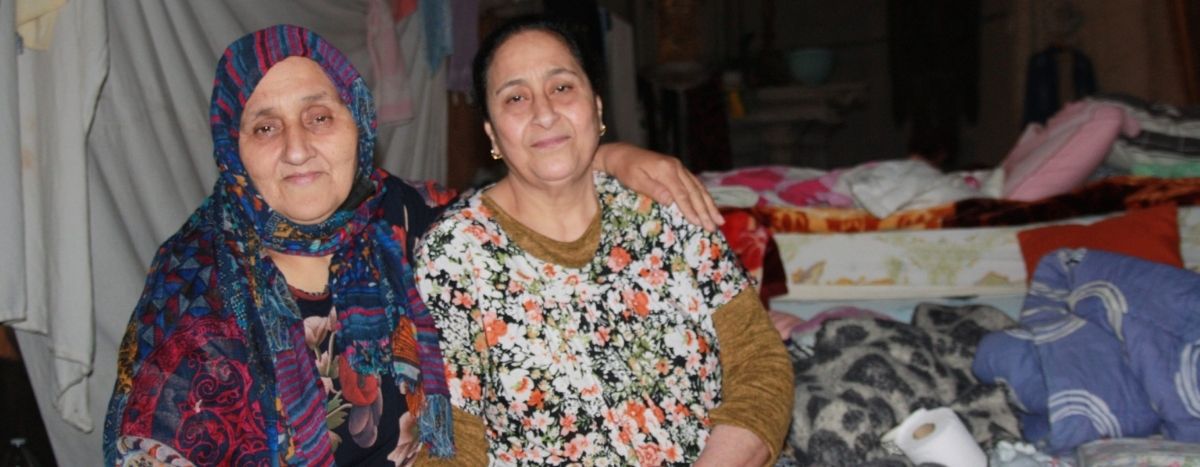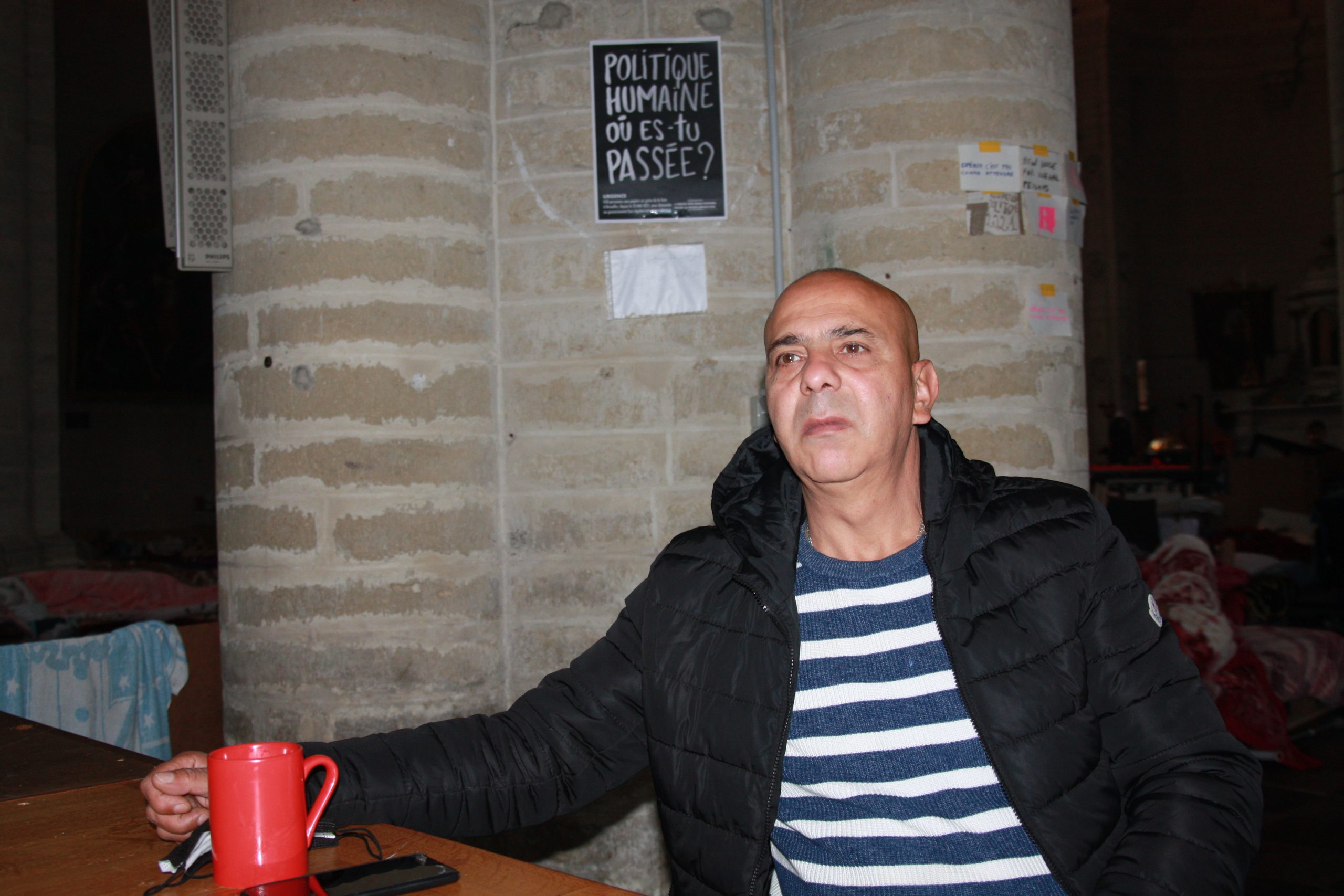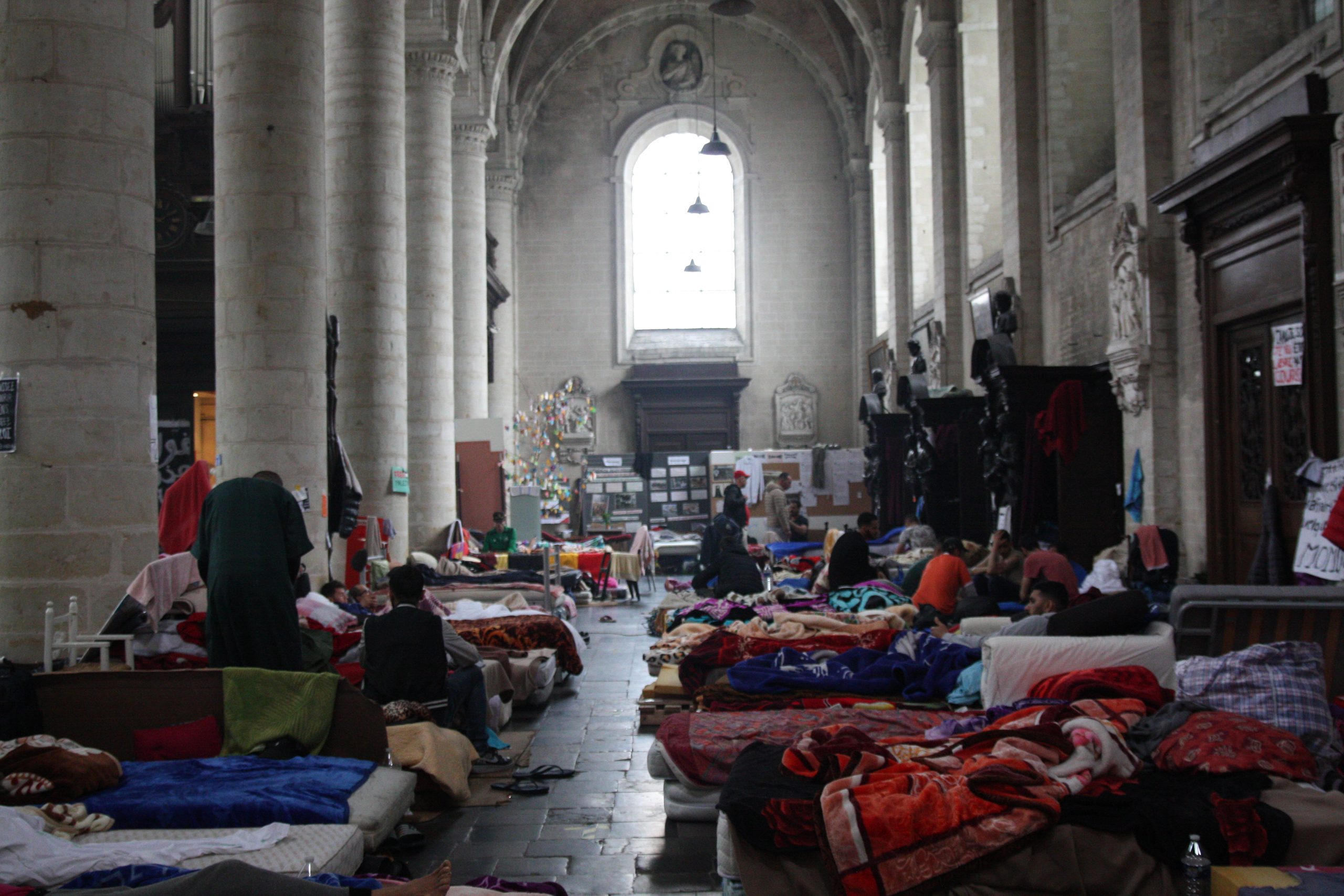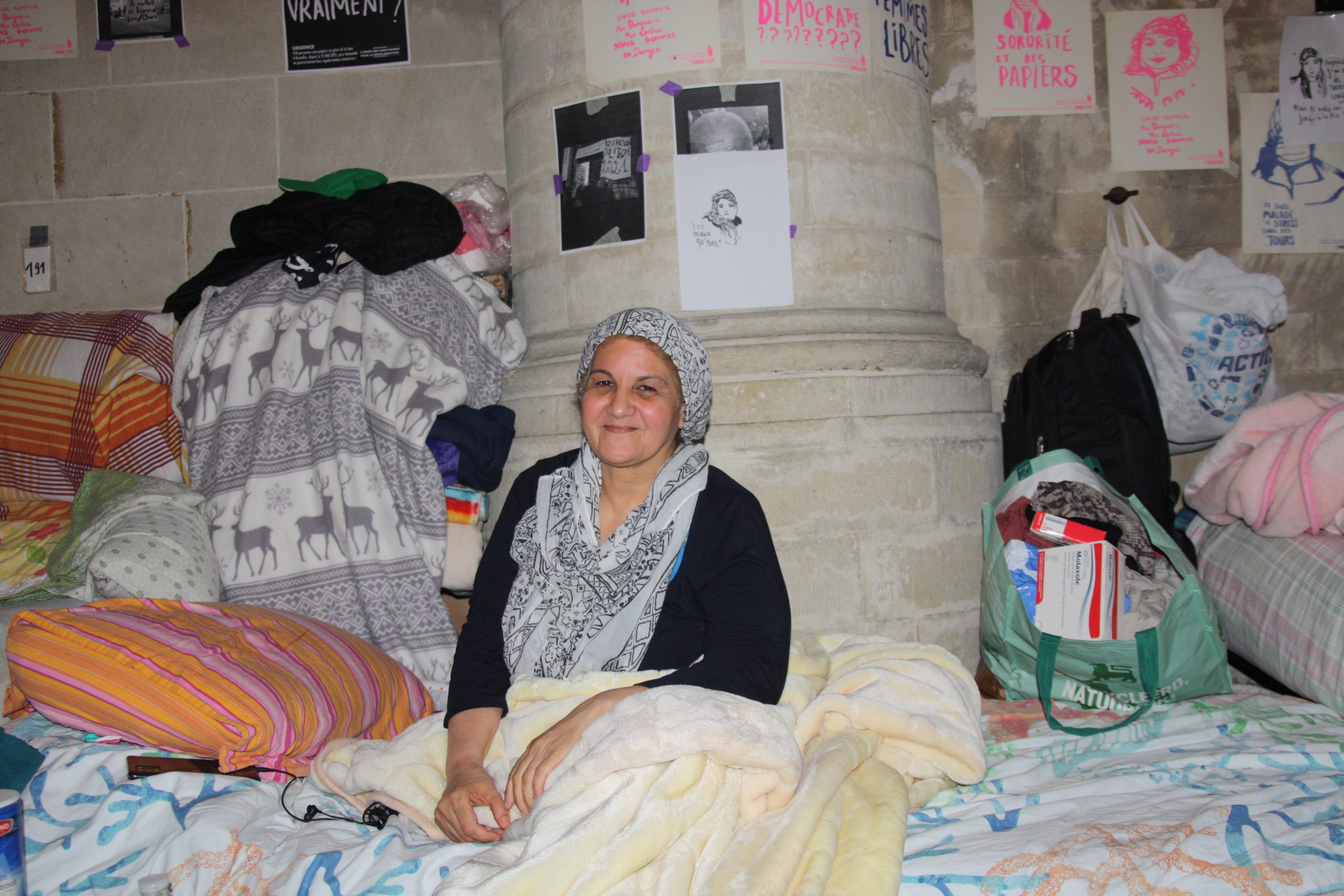
In Brussels, undocumented migrants are hungry for justice
Published on
Translation by:
Deirdre Della PaceSince 23 May, more that 450 undocumented migrants [sans papiers] have been on hunger strike. This tight-knit movement is demanding real changes in the policy of legalisation for those with irregular status. Q Code Magazine reports.
When we sit down to speak, Ahmed's voice is exhausted. He has sunken black circles under his eyes, his movements are slow. He clears his throat, taking a sip of sweetened tea. Since he began hunger-striking on 23 May, sugar has been his only source of energy, the only thing keeping him active. Alongside Ahmed, another 450 people are on hunger strike. These are men and women who are sans papiers. In other words, these are people who lack a residence permit, who have been living in Belgium for various years (some for as many as twenty) and who have been denied every possibility of escaping the irregular status in which they find themselves trapped.
"Due to the absurdity of the situation and the state’s refusal to engage in pragmatic dialogue with us," says Ahmed "we decided to stage a hunger strike. It’s not an act of suicide, much less a masochistic act. It's a form of struggle."
But let’s take a step back so that we can fully understand the history of this movement: L’Union de sans papiers pour la régoularisation (USPR).

A short history of the USPR
The sans papiers movement was born spontaneously in the first few weeks of January 2021. Men and women met with each other to discuss how the public health crisis was exacerbating the already precarious conditions of those living without residency and who, consequently, have lived through the long months of the pandemic hidden from view.
It was here that the decision came about to occupy the Church of St. John the Baptist at the Béguinage in the centre of Brussels on 30 January. Enough is enough. "Undocumented workers dared to break their own silence in order to express their discontent," – explains Ahmed – "They have refused to live in the filthy conditions that they are forced into, in spite of their daily efforts and all that they have contributed to Belgium over the years."
Despite the biting cold and the lack of central heating, dozens of sans papiers rushed to the Church to join the movement.
Men and women of all ages and from different Belgian cities joined the protest. These are men and women who leave their work, home, and family behind them to unite themselves with this cause.
In the first week of February, the Church was occupied by 120 people. The choice of location wasn't left to chance. Previously, in 2009, the parish priest Padre Danièl had opened the doors of the Church to the sans papiers as an act of protest. The location is even more symbolic if you keep in mind that the Church was erected in the Beghine district [named after a movement born in the twelfth century which reunited women from different social backgrounds]. Wishing to emancipate themselves from male dominance, these individuals decided to live in female only communes, dedicating themselves to prayer and helping the poor. Free women, neither wives nor nuns. And it was here, on this very same ground, that the sans papiers began their occupation.
Over the course of just a few months the USPR has been constantly expanding and other buildings have been occupied to host anyone who wishes to join the movement. The two main universities of Brussels, the UAB and VUB, have also occupied. Swept away by the strength of the sans papiers, other movements have united with the cause. Multiple protests are being organised with other groups in the city, including the sex workers and artists' movements.

What does living without documents mean?
Living without a residence permit means living with countless difficulties. Sans papiers usually work illegally and are almost always underpaid. Before the occupation began, Ahmed worked 17 hours to earn a daily rate of EUR 50. "I worked constantly in order to be able to pay my rent and basic expenses. I had one day off every three months. I had frequent accidents at work. Every single person you see here has survived at least one workplace accident, but they have never been able to report it."
"Every single person you see here has survived at least one workplace accident, but they have never been able to report it."
There are complications in every part of a person’s life when they don’t have a residence permit. If you are sans papiers, for example, you can’t get a sim card for your phone, because in order to get one you need an identity card. You can’t even have a bank account if you don’t have any documents to show at the local branch.
"During the pandemic, many shops stopped accepting cash. More than once I had to ask somebody at the supermarket to pay for me using their card - then I gave them back the money immediately," explains Assia, who has been living in Belgium with her family for nine years. "I live a really normal life. My husband and I work, my children go to school. In the evening we all see each other at home and we do what all other families do. I’m only missing one thing: a piece of paper that guarantees that nobody will ever force me to leave for Algeria." Another woman adds: "My son completed his academic studies here, in Belgium. He’s 16 years old and he’s the top of his class. When he reaches 18 years of age, it’ll all be over. He won’t get a diploma, he won’t be able to go to university. Somebody will come to tell him that he has to go back to his own home, but his home is here."
"Somebody will come to tell him that he has to go back to his own home, but his home is here."

How you become a sans papier
PICUM, an organisation which fights for the rights of migrants in irregular situations, describes how there are many different ways in which a person can find themselves without documents. Some people arrive in Belgium with a work contract, and if they lose their job, they also lose their residency permit. Others enter with a regular visa which is then never renewed. Some countries don’t guarantee a residency permit to children born to sans papiers. And finally, there are those who, having no other options available, arrive in Europe without documentation. They arrive through migration routes which are sadly well known, such as that of the Mediterranean Sea.
Najima tells us, "I arrived in Belgium with a visa for family reunification. In 2011, the law changed, and it was decided that reunification between grandparents and grandchildren was no longer possible. My permit was taken away from me."
The USPR condemns the fact that the procedure for regularisation in Belgium is not governed by any clearly defined rules.
Often the refusals aren’t followed up with any explanation, and there is no possibility of contesting them.
According to Ahmed, the current laws are designed specifically to force the sans papiers into the suburbs, and to keep them in their exploited conditions. "We are like water in a river, it never flows twice in the same place. The state wants to invert the natural order of things, refuting our existence and the fact that we live and work in this country. The state has the power to destroy everything that a sans papier has built over the course of the years. They forget that they are dealing with a human being."
Prospects for the struggle
"It’s better to go on hunger strike than to hold your own breath hostage."
After five months of occupation, of which one month was a hunger strike, the situation has become more and more difficult. Three people tried to commit suicide in the past week, one trying to take his own life by swallowing a razorblade. The indifference displayed by the institutions has resulted in a deafening silence. People are tired, but they remain determined. "If they think we’re going to give up after five months of occupation, they’re wrong," says Aisha.
When I ask Ahmed what he thinks about the risks that people are facing by going on hunger strike, he takes a sip of tea and smiles, saying, "there’s a proverb which says: 'better to go on hunger strike than to hold your own breath hostage.' We’re willing to jeopardise the one thing that is most important to us, our health, in order to gain more freedom, dignity, and recognition for who we are."
This article was published as part of an editorial partnership with QCodeMag. The piece, revised by the editorial staff here at Cafébabel, was edited by Caterina Rodelli and originally published in QCodeMag on 28 June 2021.

Translated from I Sans Papiers di Bruxelles hanno fame di giustizia



